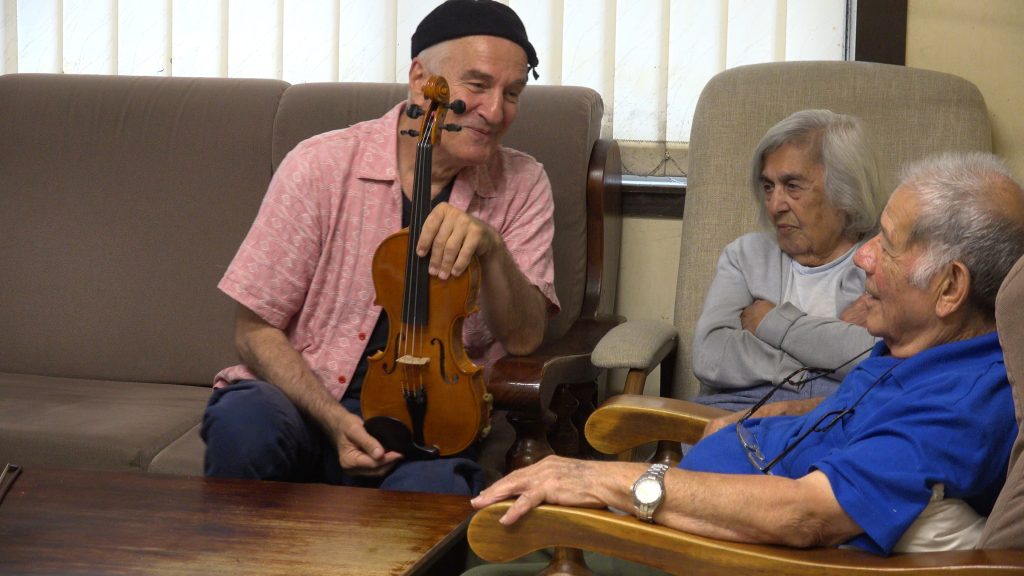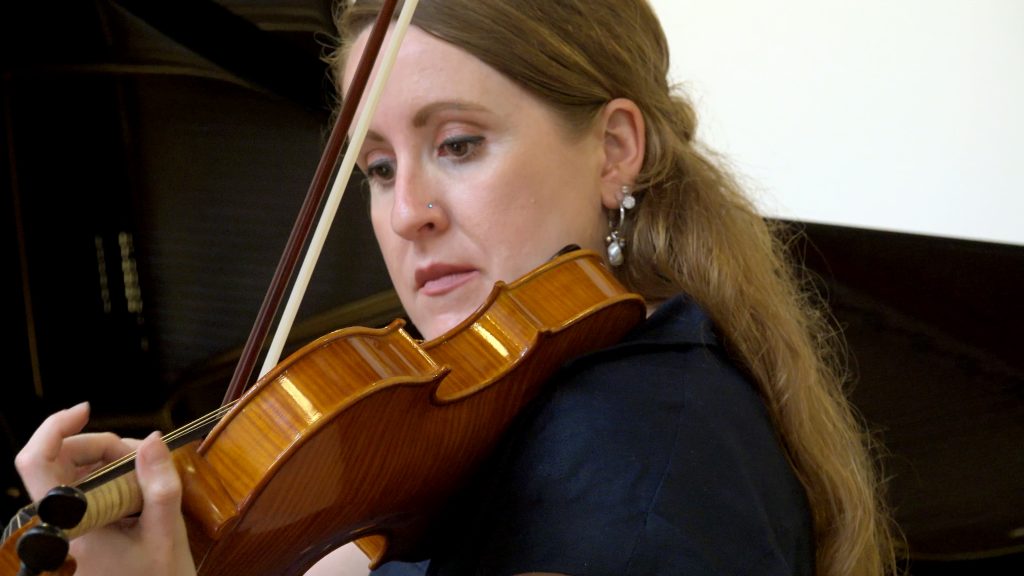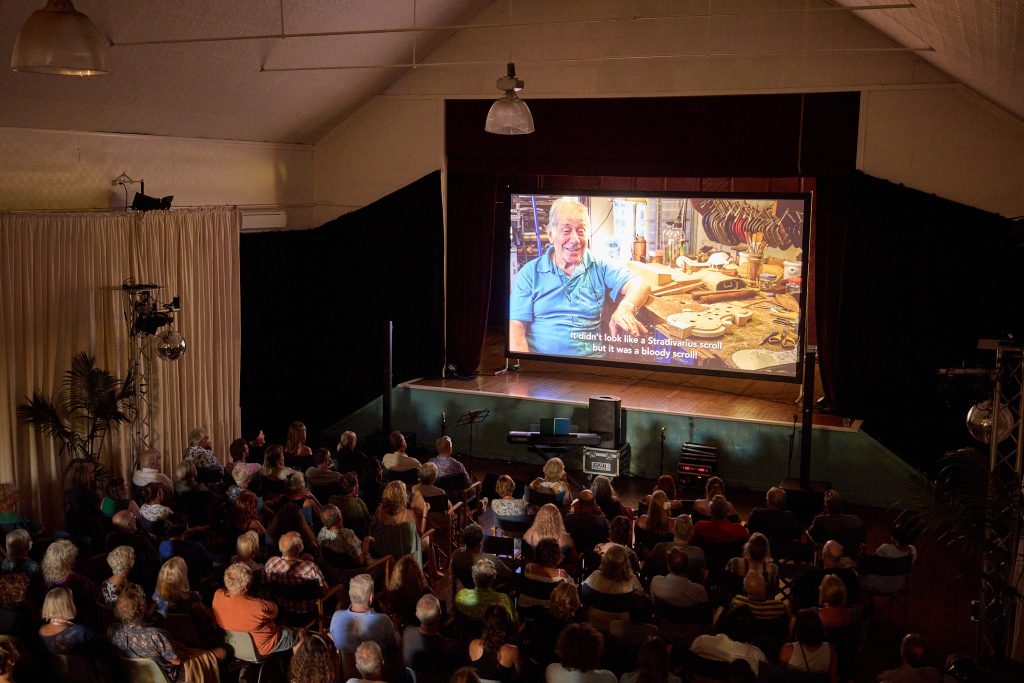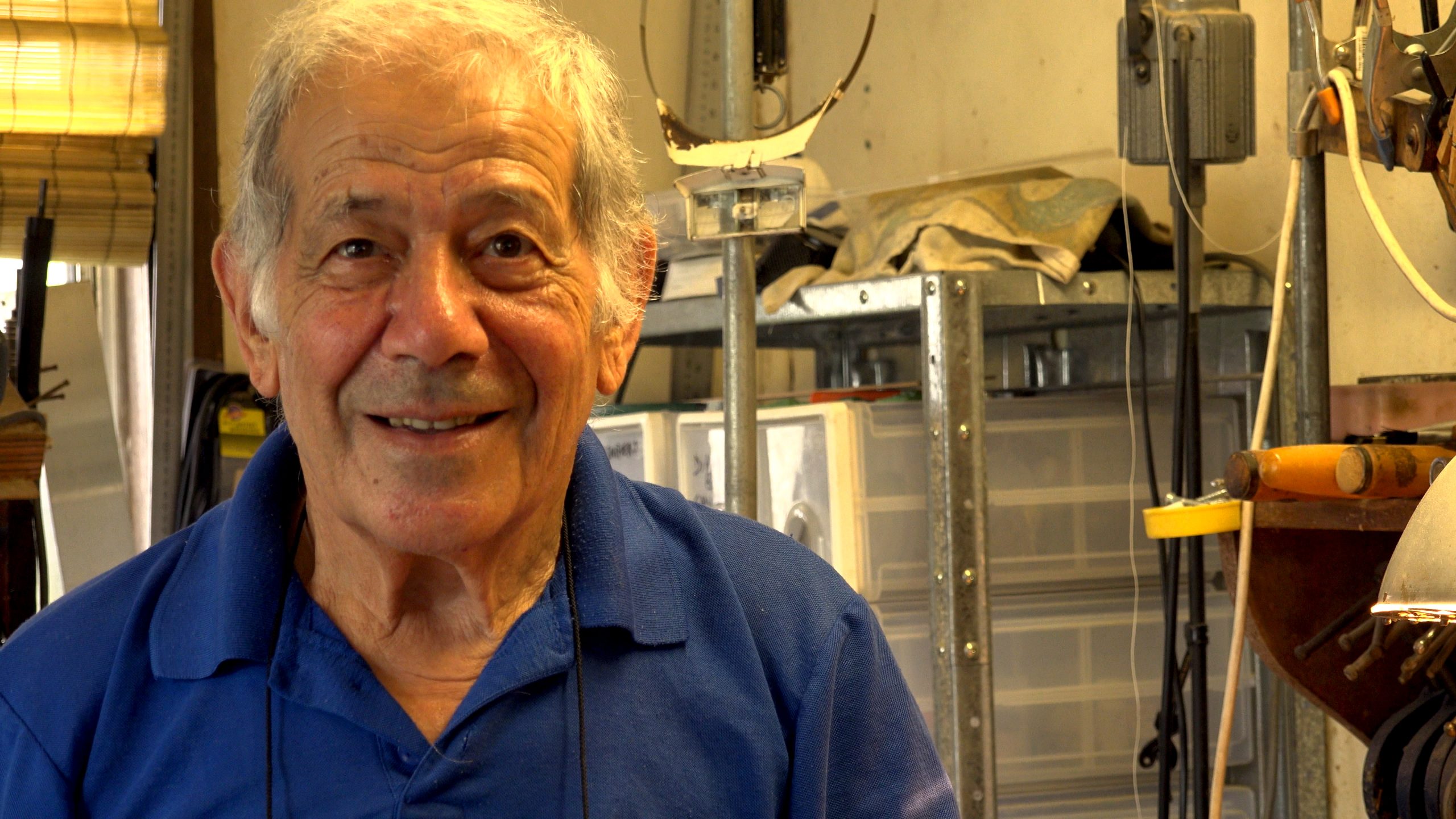Having singlehandedly made 800 violins, Harry Vatiliotis is arguably Australia’s best regarded and most prolific luthier (someone who creates instruments with string, a neck and sound box).
The Cypriot Australian is so well-loved that an ‘observational documentary’ has been produced in his honour by director Carla Thackrah and producer / composer Romano Crivici. Titled The Last Violin, the documentary focuses on Harry as he created his 800th and final violin, and features his loving wife Maria and Mr Crivici, who has known Harry for years.
Since its official Australian premiere last year, the documentary has now been selected to screen at the Cyprus International Film Festival in November in Nicosia, and later at the Bridges International Film Festival in Corinth, Greece.
The Greek Herald spoke with Mr Crivici ahead of the documentary’s European debut to hear all about how he and Harry are feeling.

The Last Violin will make its Europe debut at the Cyprus International Film Festival and later at the Bridges International Film Festival. How did this come about?
That’s a good question and though it may seem straightforward, getting a film into an international festival is not easy. We worked hard approaching various festivals that were open to subjects to do with the arts and music. The Cyprus organisers were excited straight away and were taken not only by the fact that Harry is a Greek Cypriot and an Australian hero in the music world, but that the film is, at its core, a deep love story between Harry and Maria.
They were also very interested in the idea of us presenting concerts of music I had composed for the film, played upon the actual violin Harry made during the course of filming – a perfect complement to the actual film screening. To do this, we have worked hard to raise the funds to be able to take Allie Osborne, the brilliant soloist who features in the film, with us to both Nicosia and Korinthos in Greece.
How does it feel to know the film is debuting in the homeland of Harry and Maria (the subjects of the film)?
Brilliant and deeply fulfilling! We realised our project had come full circle and it now seems it was meant to be. Knowing how deeply Harry felt about the land of his birth, it was one of our hopes that he would be able to share the story of his life with his many relatives and compatriots living there.
Harry has donated a number of instruments to the conservatorium in Nicosia, as well as some of his relatives, so this won’t be the first of his instruments to be played there. Given Allie is now the Associate Concertmaster of the Sydney Symphony Orchestra, she could well be one of the best musicians to play it in Cyprus. In telling the amazing story of his life as a migrant, a craftsperson, an iconic figure in the Australian music world and his relationship with the love of his life Maria, it really made sense that his story ‘returned’ and was completed back home.
Again, for us it is a perfect completion to our project of acknowledging Australia’s greatest violin maker!

How did Harry react when he heard about the film festival?
Harry, being Harry, was initially delighted and very excited, but always humble about his achievements, he wasn’t sure what to make of the film festival invitation. As the significance of it sunk in, he realised how fortunate he was to be able to give back to the land of his birth that gave him so much. He is also thrilled for his relatives who are still living there to see how his life has panned out in Australia.
It was interesting to watch Harry during the course of filming (almost 9 months), and then at the end, when he saw the completed film. He often told us it allowed him to review and process the story of his life, enabling him to have a deeper and broader perspective of it. He even said that seeing the film made him feel his life is complete. Always grateful and untroubled by mortality, he is ready, at 87 years of age, to let it go… when the time comes! Hence, I named the last piece of music I wrote for the film “Let it Go.”

What’s next for you and the film?
We are already working with a major Australian film distributor (Ronin Films) in getting it ‘out there,’ a task that many people don’t realise is almost as hard as making the film. We were very fortunate that the head of Ronin Films took an immediate interest and loves the film and its timeless story set in, of all places, Harry and Maria’s home in Concord, the heart of Australian suburbia. After it has screened at the festivals, SBS has expressed an interest in broadcasting it. Let’s wait and see what happens.
Is there anything else you’d like to say?
It has been a deeply fulfilling, even if difficult, process at times, particularly in trying to generate the funding to complete it, let alone get support from the major Australian arts organisations and broadcasters. We are fortunate, because Harry is so loved and respected in the music and arts community all over Australia, they came to our aid and supported us to raise the funds required to finish the film to the highest cinematographic level. Carla and I were happy to put in huge amounts of time, gratis, because it was a story that had to be told, not only because of Harry’s personal achievements and his contribution to Australian culture, but to the whole world of music beyond our shores.
It’s great to know that his name, through his more than 800 instruments, will live on.
